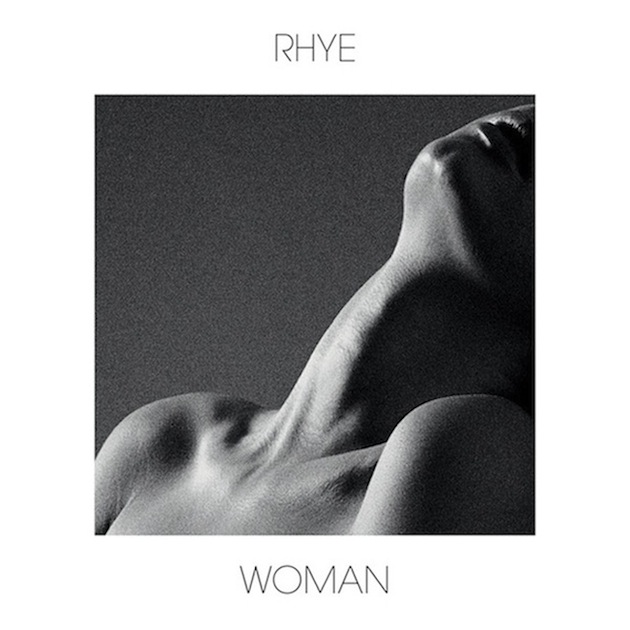Woman opens with the sound of blossoming strings, brass, woodwinds, and harp before settling and moving into the main body of “Open.” The album that follows takes freely from a classic-leaning strain of quieted early 90s soul. Rhye, and especially singer Mike Milosh’s voice, garnered immediate and accurate comparisons to Sade since anonymously releasing “Open” on Youtube. But there’s a minimal, unfussy approach to Woman and a devotion to its subject matter that help bring the record starkly into the present. The arrangements are steered as much by what simply works as much as by taste. Many have been quick to highlight Rhye’s Jamie xx-esque electronic flourishes, but they’re so understated and feel so in service to the record’s more ornate and organic whole that picking out some synths and kick drums from the hushed jazzy chamber aesthetics seems beside the point. Woman is timeless and sophisticated.
Producer/singer Mike Milosh and producer Robin Hannibal approach Woman from an extremely personal space. Its romantic themes circulate a relationship, its participants with a painfully short amount of time together before they’re forced to part ways due to circumstance. The record concerns itself with more impressionistic, carnal feelings than with any contextual details of a relationship. The heartbreaking and confused sensations of dread, joy, longing, desire, and tearful gratitude are all here sketched in vivid monochrome from the opening track with a delicate and restrained acuteness, the duo landing on each emotion with careful deliberateness.
Milosh is a captivating vocalist. Every fluctuation in his androgynous croon feels like an event. His voice is emotive and aching, but it never reaches or soars, even when he does climb up into the upper register. It extends from a remote and internal place and comfortably occupies the hollowed out areas of the duo’s sound instead of thrusting itself out front. Yet it’s how it fits into the larger picture that lends it its weight. On standout, “Verse,” Milosh bounces off the quivering tension of the barely-there synths and drums interrupted by a plinking percussion sound, lending the track the stillness of unbearable intimacy contrasted by the piercing heat of lustful intension. (Notice how Milosh lands on the word “no” in the chorus and then exponentially draws it out.) When the whispy strings take over and Milosh offers up a chorus of wordless “ooh”s near the end, all the pent up emotion spills over.
The attention to space in the arrangements is breathtaking. Full of stealthy orchestral flourishes, plump bass lines, fleshy guitar chords, cleanly electronics, and sonorous piano, everything breathes and has a velvety tactility, yet its lush and expansive, like a sharp black and white photograph full of shadow and texture, its hues and dimensions sitting in stark contrast to one another yet forming a portrait full of singular meaning and beauty. As mentioned before, the duo retain a stripped down approach and it helps make each production choice and songwriting turn feel pondered and noteworthy, each track carving out its own identity and mood within a larger thematically consistent body.
Between the disco-y “Hunger” and the pastoral, drum-less “One of Those Summer Days” Woman offers the full spectrum of emotions tied to the album’s romantic subjects. But more importantly it’s grounded in something palpable and honest. Woman is an easy enough album to enjoy for its surface pleasures, but with each continued listen, the album’s peaks and valleys–both emotional and sonic–become sharper and more defined, and the feeling behind Milosh’s voice, even more internalized and heartrending, until when the title track ends you feel like you’ve also left some part of you behind.


